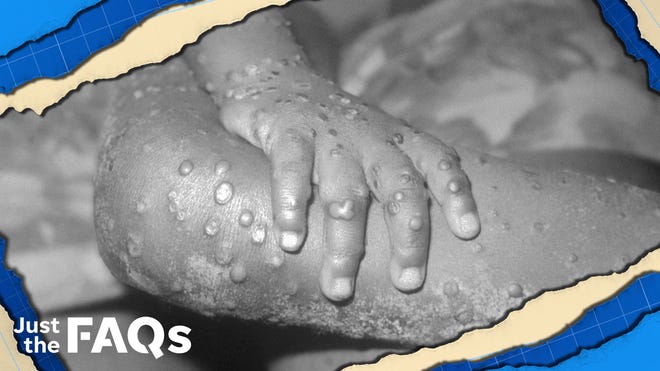
More than 250 cases of monkeypox have been confirmed around the world over a two-week period, but a pandemic is unlikely, a World Health Organization expert said Monday.
Ten cases were confirmed in the U.S. from May 13 to May 26, the WHO said. The U.S. is one of 23 countries outside endemic regions for monkeypox to report cases over the time period – a total of 257 confirmed cases and an additional 117 to 127 suspected cases that were still being investigated.
No deaths have been reported.
“At the moment, we are not concerned about a global pandemic,” said Dr. Rosamund Lewis, technical lead on monkeypox for the WHO. “We are concerned that individuals may acquire this infection through high-risk exposure if they don’t have the information they need to protect themselves.”
Lewis said the vast majority of cases being seen in dozens of countries globally are in gay or bisexual men. But she warned that anyone is at potential risk of the disease, regardless of their sexual orientation.
Monkeypox virus is transmitted from one person to another by close contact with lesions, body fluids, respiratory droplets and contaminated materials such as bedding. The incubation period of monkeypox is usually from six to 13 days but can range from five to 21 days, the WHO says.
"The situation is evolving rapidly and WHO expects that there will be more cases identified as surveillance expands in non-endemic countries," the WHO warned in an updated released Sunday.
MONKEYPOX NOW IN 7 STATES: US health officials urge awareness, not fear.
Early symptoms of monkeypox can include fever, muscle aches, chills and fatigue. In more severe cases, a rash can develop, often on the face and genitals. There are two antivirals being used to combat the infection, but most people with the infection suffer only mild symptoms that don't require the drugs.
Monkeypox is a viral "zoonosis" – a virus transmitted to humans from animals with symptoms very similar to those seen in the past in smallpox patients, although less severe. The name monkeypox originates from the initial discovery of the virus in monkeys in Statens Serum Institute in Copenhagen, Denmark, in 1958.
The first human case was identified in a young child in the Democratic Republic of the Congo in 1970.
Historically, vaccination against smallpox had been shown to protect against monkeypox. However, immunity from smallpox vaccination will be limited to older people in many countries. Mass smallpox vaccination was eliminated in the U.S. in 1972 after smallpox was eradicated.
MONKEYPOX AND SEXUALLY TRANSMITTED DISEASE:Monkeypox cases may be mistaken for a sexual transmitted disease, CDC warns
Anyone who has direct contact with an infected person, including intimate or sexual contact can get monkeypox. Steps for self-protection include avoiding physical contact with infected people.
"It is also critical to avoid intimate or sexual contact with someone with a localized anogenital rash and/or oral ulcers," the WHO said. "During the early phase of this outbreak while information is still being collected, it would be prudent to limit the number of sex partners, keep hands clean with water and soap or alcohol-based gels and maintain respiratory etiquette and hand hygiene."

Source link







